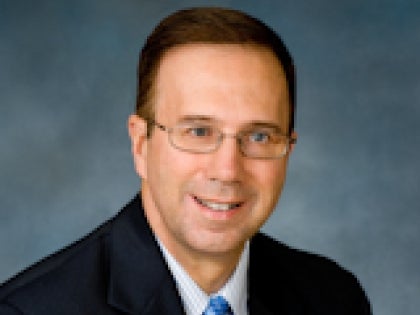
Senate Aims to Fight Illegal Prescription Abuse
Joseph A. Griffo
February 14, 2012
Senate Passes Bills to Curb Illehal Prescription Drug Abuse
Series of bills aimed at controlling abuse of prescription painkillers
With the abuse of illegally-obtained prescription narcotics growing rapidly, Senator Joseph A. Griffo (R-C-IP, Rome) announced that the New York State Senate today passed a slate of bills to curb the black market in prescription painkillers.
Senate approval of the bills, followed a roundtable discussion on the issue of abuse of prescription painkillers was held today by the Senate Committee on Alcohol and Substance Abuse. This was a second in a series of public meetings discussing legislation to combat prescription drug abuse and to examine improving New York’s prescription reporting system.
“We’ve seen a spike in the number of emergency room visits due to abuse of prescription drugs,” said Senator Griffo. “The statistics indicate that total number of people who go to the E.R. due to marijuana and heroin abuse - combined, aren’t as many as those who are there because of prescription drug emergencies.”
The roundtable today featured discussion and input from parents of victims whose deaths were attributed to prescription drug abuse; a physician from Bronx-Lebanon Hospital; and representatives from: the New York State Department of Health’s Bureau of Narcotics Enforcement, the Attorney General’s Medicaid Fraud Control Unit, the Long Island Council on Alcoholism and Drug Dependence, Medical Society of the State of New York, Pharmacists Society of the State of New York, the Medical Walgreen’s Pharmacy chain, and drug abuse prevention organizations.
Griffo said that legislation passed by the Senate today would do the following:
> Place greater controls on Hydrocodone and Tramadol, highly addictive prescription pain medications (S.5880A);
Prescriptions for opioids, particularly Oxycodone, Hydrocodone and Tramadol, have skyrocketed; among abused drugs, they are second only to marijuana. In New York City, drug related ER visits increased 40% between 2004 and 2009 with fatalities from opioid overdoses alone increasing by 20% between 2005 and 2009.
"Each month, the State Department of Health identifies thousands of patients who obtain prescriptions for controlled substances from multiple prescribers within that same month,” Griffo noted. “Since pain is one of the most common reasons for a patient to see a doctor, abusers may solicit as many prescriptions as possible to stockpile painkillers.”
> Increases criminal penalties for physicians and pharmacists who illegally divert prescription drugs, which, in effect, punishes bad actors, protects consumers from compromised medications, and safeguards resources for the Medicaid program (S. 5260C);
In June 2011, the Senate Standing Committee on Codes, held a public hearing that examined criminalizing the improper transfer and inappropriate possession of non-controlled substances and the subsequent effects on Medicaid expenditures and public health.
> Criminalize the illegal sale of a controlled substance by a practitioner or pharmacist to address practitioners operating “pill mills,” which fuel the black market for controlled substance medication (S. 6066);
Overdose deaths from prescription pain killers have reached epidemic proportions in the United States. In fact, according to a recent report of the Center for Disease Controls and Prevention (CDC), more people die from prescription drug overdoses than heroin or cocaine combined.
While New York has laws to deal with health professionals who illegally prescribe controlled substances, there are still cases such as the one last fall, where a Flushing, Queens doctor saw as many as 120 “patients” per day at a Pain Clinic which he oversaw. While the doctor was indicted over one patient who ultimately died of an overdose, it is believed as many as nine people died as a result of that lone physician’s illegal prescribing. That same doctor was also reported prescribed more than 2,500 pain pills to gunman in the Medford, Long Island pharmacy shooting.
New York law currently lacks a similar provision to address pharmacists and practitioners who illegally dispense controlled substances. This bill fills that hole by creating a new crime: criminal sale of a controlled substance by a practitioner or pharmacist.
> Criminalize the first-degree illegal sale of a controlled substance to a minor under the age of 14, making it a class A-II felony (S. 3210B);
> Require the Office of the Medicaid Inspector General (OMIG) to post all administrative law decisions on their website within 30 days of decision to increase the efficiency and transparency of decisions concerning Medicaid fraud and abuse (S. 6271);
Anyone wishing to appeal a decision by OMIG must go before an administrative law judge. However, interested groups expressed concern because, although a public record, these decisions are difficult to access. Currently, each interested group must send a Freedom of Information Law request to OMIG.
Also today, the Senate passed a resolution, in conjunction with the national day, that would designate April 28, 2012 as “Prescription Drug Take-Back Day” in New York State. The day was originally designated in 2008 by the United States Department of Justice’s Drug Enforcement Administration (DEA) in an attempt to have people turn in unwanted, unused, and expired prescription drugs in a safe, convenient way.
Last year, more than 377,000 pounds – equal to 188 tons - of unwanted or expired drugs were returned at the more than 5,300 participating sites across all 50 states on that one day.
The bills were sent to the Assembly.
-30-
Share this Article or Press Release
Newsroom
Go to NewsroomGriffo statement on State of the State Address
January 14, 2026
Griffo, Senate Republicans announce 2026 legislative agenda
January 12, 2026